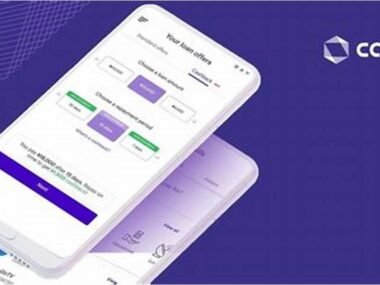When money is tight and the bills are piling up, the thought of taking a loan can seem like a lifeline. Whether it’s to cover an emergency, fund a business idea, or pay for a major expense, the decision to take a loan is significant. But before you sign on the dotted line, you might wonder: Should I consult a financial advisor first?
Many Nigerians overlook the importance of seeking expert advice before applying for a loan, often leading to choices that cause unnecessary financial stress. This article will break down the role of a financial advisor, why consulting one before borrowing money can save you from pitfalls, and actionable steps to make the best decision for your finances.
You can also read:
- How to Get Fast Funds with Instant Approval and Easy Terms!
- Are There Agricultural Loans for Farmers in Nigeria?
- How Can Rural Farmers Access Loans Without Bank Accounts?
- What Types of Loans Are Available to Nigerians, and Which One Suits My Needs Best?
- How Can I Manage My Loan Repayment If I Have a Fluctuating Income?
- How to Get Quick Loan Approval Without Stress in Nigeria
- How to Apply for Loans Without Being Rejected in Nigeria
- Proven Steps to Secure a Loan Without Collateral in Nigeria
- The Secrets to Getting Your Loan Approved on the First Attempt
- How to Borrow Money Safely Without Falling for Scams
- How to Access Loans Fast Without Long Bank Delays
- How to Apply for a Loan Without a Guarantor or BVN
- The Easiest Way to Get a Loan Without Collateral in Nigeria
- Best Loan Options in Nigeria for People with No Steady Income
- Smart Strategies to Get Your Loan Approved Faster
- How to Access Loans for Your Business Without High Interest Rates
- Top Mistakes to Avoid When Applying for a Loan in Nigeria
- How to Borrow Money Without Ruining Your Reputation
Why Do You Need a Loan?
Before even thinking about applying for a loan, it’s essential to identify why you need the money. Ask yourself:
- Is it for an emergency, like medical bills or urgent repairs?
- Are you planning to use the money to start or grow a business?
- Is it for an investment, such as real estate or stock trading?
- Or is it to fund a personal goal, like education or a wedding?
Understanding the purpose of your loan will help you determine the type of loan to apply for and how much you truly need.
Who Is a Financial Advisor?
A financial advisor is an expert who provides guidance on managing your finances. Their role is to help you make informed decisions, whether it’s about budgeting, investing, or borrowing money. They analyze your financial situation, weigh your income against your liabilities, and advise you on the most suitable loan options for your needs.
Why Consult a Financial Advisor Before Taking a Loan?
- Understand Your Financial Standing: A financial advisor will help you assess whether you can afford a loan. They’ll review your income, expenses, and debt-to-income ratio to ensure you don’t borrow beyond your capacity.
- Identify the Right Loan: There are many loan products in Nigeria, from personal loans to business loans and even microfinance options. A financial advisor will guide you to the one that aligns with your needs and financial goals.
- Prevent Overborrowing: Many people fall into the trap of taking more money than they need, leading to higher interest payments. A financial advisor can help you determine the exact amount you should borrow.
- Plan for Repayment: Loans are not free money; they come with interest and repayment terms. A financial advisor will help you develop a realistic repayment plan to avoid defaulting.
- Avoid Predatory Lending Practices: In Nigeria, some lenders offer loans with hidden fees or exorbitant interest rates. A financial advisor can help you spot and avoid these traps.
Steps to Take Before Applying for a Loan
- Define Your Loan Purpose: Be clear about why you’re taking the loan.
- Create a Budget: Determine how much you need and how you’ll use the funds.
- Consult a Financial Advisor: Reach out to an expert to review your financial situation and advise you on the best loan options.
- Research Lenders: Compare interest rates, repayment terms, and fees from different financial institutions.
- Review the Terms and Conditions: Ensure you understand the loan agreement before signing.
Carbon Loan Overview
For Nigerians looking for quick, reliable loans, Carbon Loan offers a convenient solution.
| Loan Type | Interest Rate | Eligibility | Repayment Terms |
|---|---|---|---|
| Personal Loan | 15% per month | Valid ID, stable income, smartphone | Up to 12 months |
| Business Loan | 18% per month | Business proof, valid ID | 6–12 months |
Visit Carbon Loan to learn more or apply.
How to Plan for Repayment
- Set a Monthly Repayment Budget: Allocate a portion of your monthly income to repay the loan comfortably.
- Start Repaying Immediately: Don’t wait until the due date. Pay in installments if possible to reduce interest.
- Avoid Late Payments: Late payments can attract penalties and damage your credit score.
- Generate Extra Income: If your current income can’t cover the loan repayment, consider taking on a side hustle to make extra money.
Advice from the Edujects
“On no account should you take beyond what you can repay. This is an opportunity, but don’t overuse it just because you have access to it freely. Don’t borrow beyond the capacity of your income expectations. Endeavor to use the money for its purpose.
Learn from the business side of the Igbos. They would never borrow money for anything other than the intended purpose. Anyone can have an emergency, but emergencies require proper handling. Once you have provision through this loan, fill the gap immediately and start planning repayment as soon as the emergency is resolved.
This builds credibility with lenders and encourages financial institutions to support others. Let’s build a trust-driven Nigeria where companies can invest. The best way to encourage Carbon Loan to extend more loans is to pay back on time. Don’t wait for phone call reminders—start planning repayment the moment you take the loan. Share this advice with anyone in need of emergency help.”
Conclusion
Taking a loan is not just a financial transaction; it’s a commitment. Consulting a financial advisor before applying for a loan can save you from costly mistakes and set you on the path to financial stability. With expert guidance, you can choose the right loan, manage repayment effectively, and achieve your financial goals without stress.






